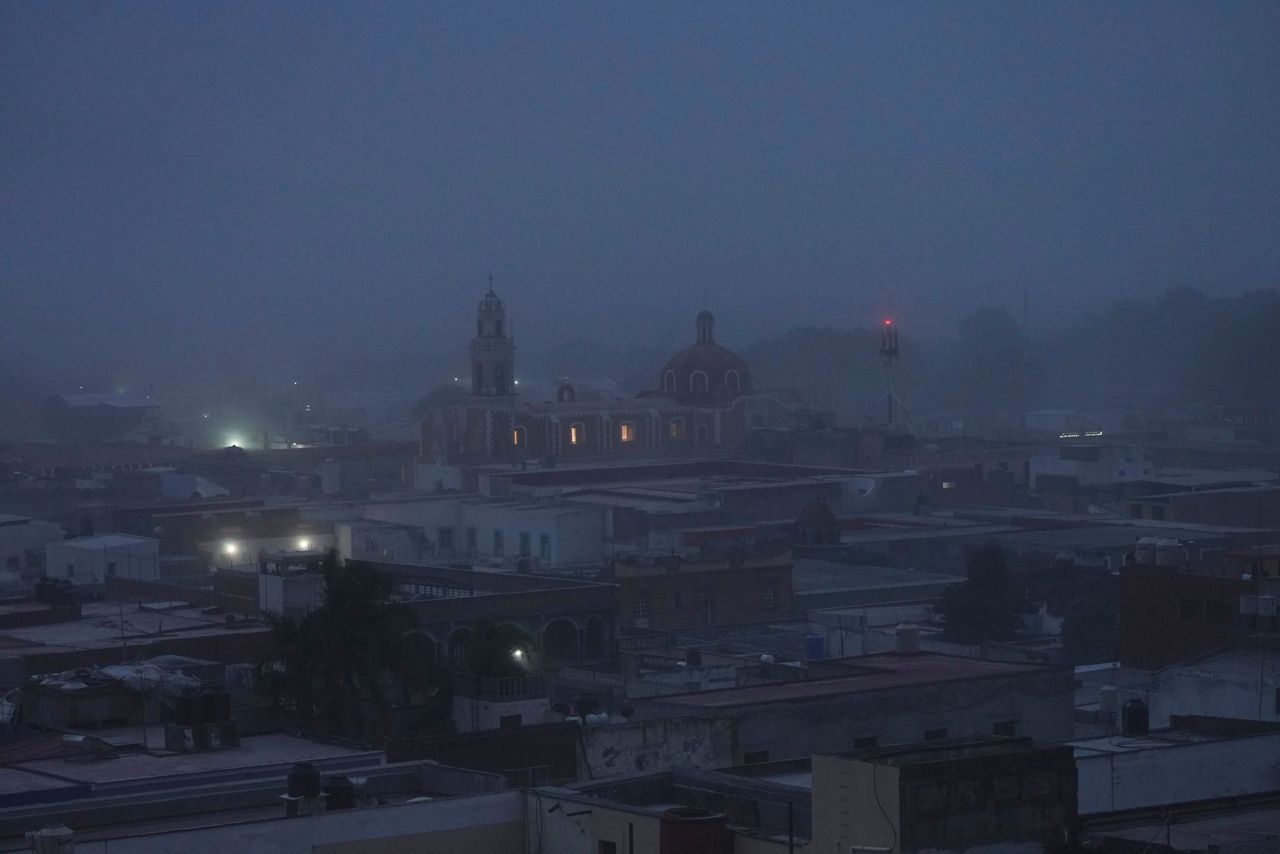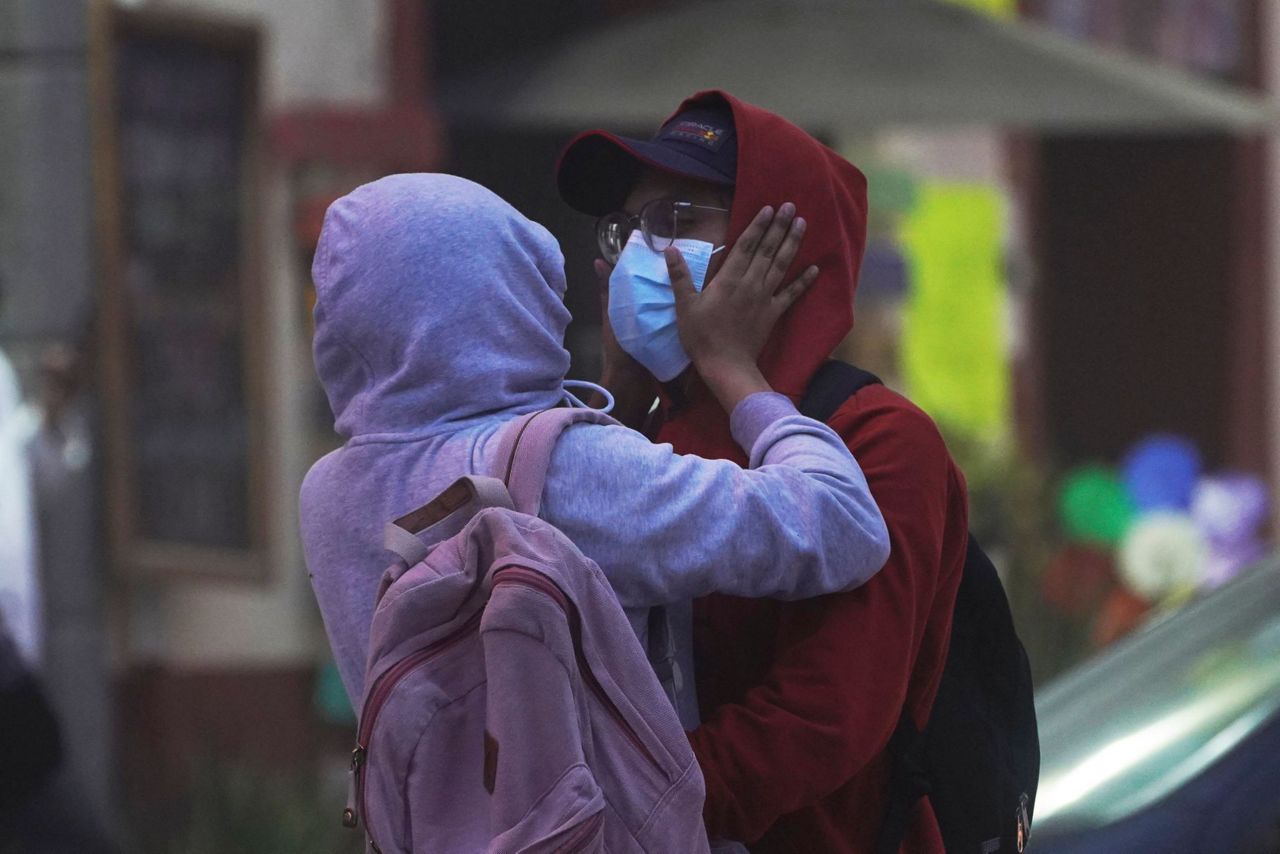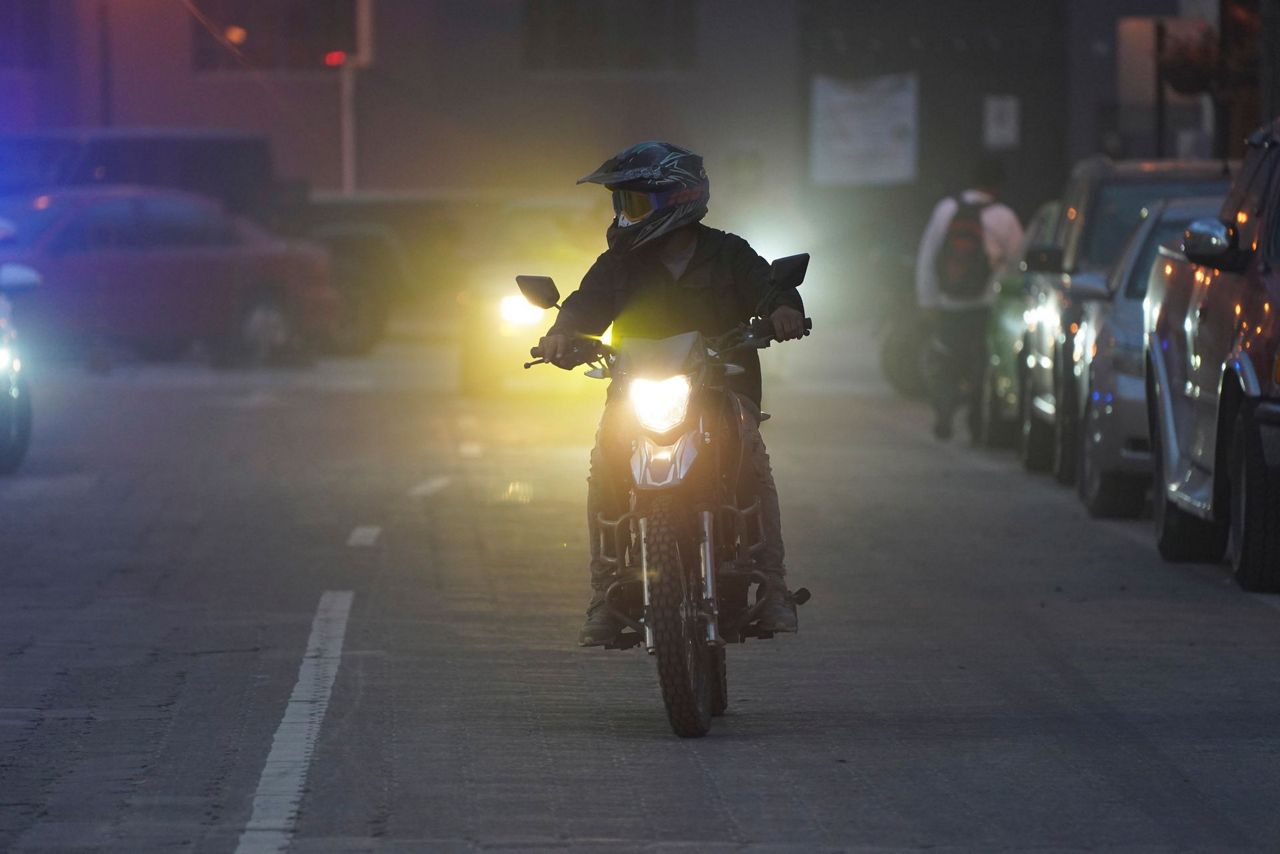AMECAMECA, Mexico (AP) — Concern about the Popocatepetl volcano changes with the wind. While east of the mountain residents swept streets and didn’t remove their masks on Tuesday, here to the west, they casually watched the gas and ash plume emerging from its crater.
The 17,797-foot (5,425-meter) mountain just 45 miles (about 70 kilometers) southeast of Mexico City and known affectionately as “El Popo,” has been belching for days, dusting towns and crops in Puebla in a super-fine ash.
“When nothing is happening we worry,” said a cheerful Viridiana Alba, who has been selling flowers in Amecameca’s central plaza for 25 years. “El Popo,” as the volcano is affectionately known, rises directly across from her stand.
“We know that right now it’s releasing smoke, that’s freeing the energy that it holds,” she said. Ash still rests on the awning that shades her plants from when the wind blew her way last weekend. The town was shaken by the volcano’s tremors, but as long as the ash remains light she believes it will help her plants.
Winds have blown a large plume of ash east over Puebla and Veracruz states and eventually the Bay of Campeche and beyond.
Mexico’s National Center for Prevention of Disasters said in its report Tuesday that small domes of lava continued forming inside the crater that were then being destroyed by small and moderate explosions. It advised that people living in communities near the volcano would likely continue those explosions over the coming days and weeks.
Three days ago “my house shook almost all night, it was amazing,” said Arturo Benítez, a former local official. “The sound of the volcano was strong, it resembled a lit boiler and a lot of ash fell, but then suddenly on this side it settled down.”
That was Sunday, when authorities raised the alert level, while maintaining there is not current risk to the population.
No evacuations have been ordered, but authorities have been driving evacuation routes, preparing some shelters and doing simulation drills.
On Cortes Pass, a small highway that crosses a saddle between Popocatepetl and the inactive Iztaccihuatl volcano, a couple dozen civil defense vehicles and soldiers blocked the way Tuesday.
The road was closed to traffic and most of the cabins that draw tourists were empty.
Cástula Sánchez, 75, who sells food to tourists on the weekends, was confident Popocatepetl would settle down again and the tourists would return. She lives in nearby San Pedro Nexapa where three decades ago lava arrived close to her home before they could evacuate, but they were spared.
Now she runs a local information service from the back of her shop. Residents bring her short messages scribbled on a piece of paper that she then reads over a loudspeaker the whole community can hear. So far authorities have asked nothing of her, just to keep an eye out.
In Amecameca, police handed out pamphlets with tips on being prepared in case the volcano’s activity increased. The pamphlet recommended having important documents at hand, a full gas tank, masks and towels to dampen if residents had to leave in a hurry.
Most residents already know, especially those who remember an eruption in 1997 that “darkened the sky, thundered ... and a muddy rain fell,” Benítez said.
“The pyroclastic cloud came to Amecameca and it was chaos, everyone wanted to leave then and it was tremendous,” he said.
The only time Popocatepetl triggered a red alert on the government’s stoplight-style system since emerging from decades of dormancy in 1994 was in 2000. The volcano’s last major eruption was more than 1,000 years ago.
The activity this time has so far not been significant for locals, but the localized impacts could be real for residents on one side of the volcano while everything is normal on the other.
Benítez who worked years ago as a photographer with federal authorities monitoring the volcano said he thought coverage in recent days had been a bit exaggerated. “It’s not that bad, except if they know something we don’t know, because the activity has lessened.”
President Andrés Manuel López Obrador too downplayed the situation Tuesday.
“We are going to be watching and if there's anything we're going to inform,” he said. “But we feel like there isn't going to be a problem.”
Copyright 2023 The Associated Press. All rights reserved. This material may not be published, broadcast, rewritten or redistributed without permission.





